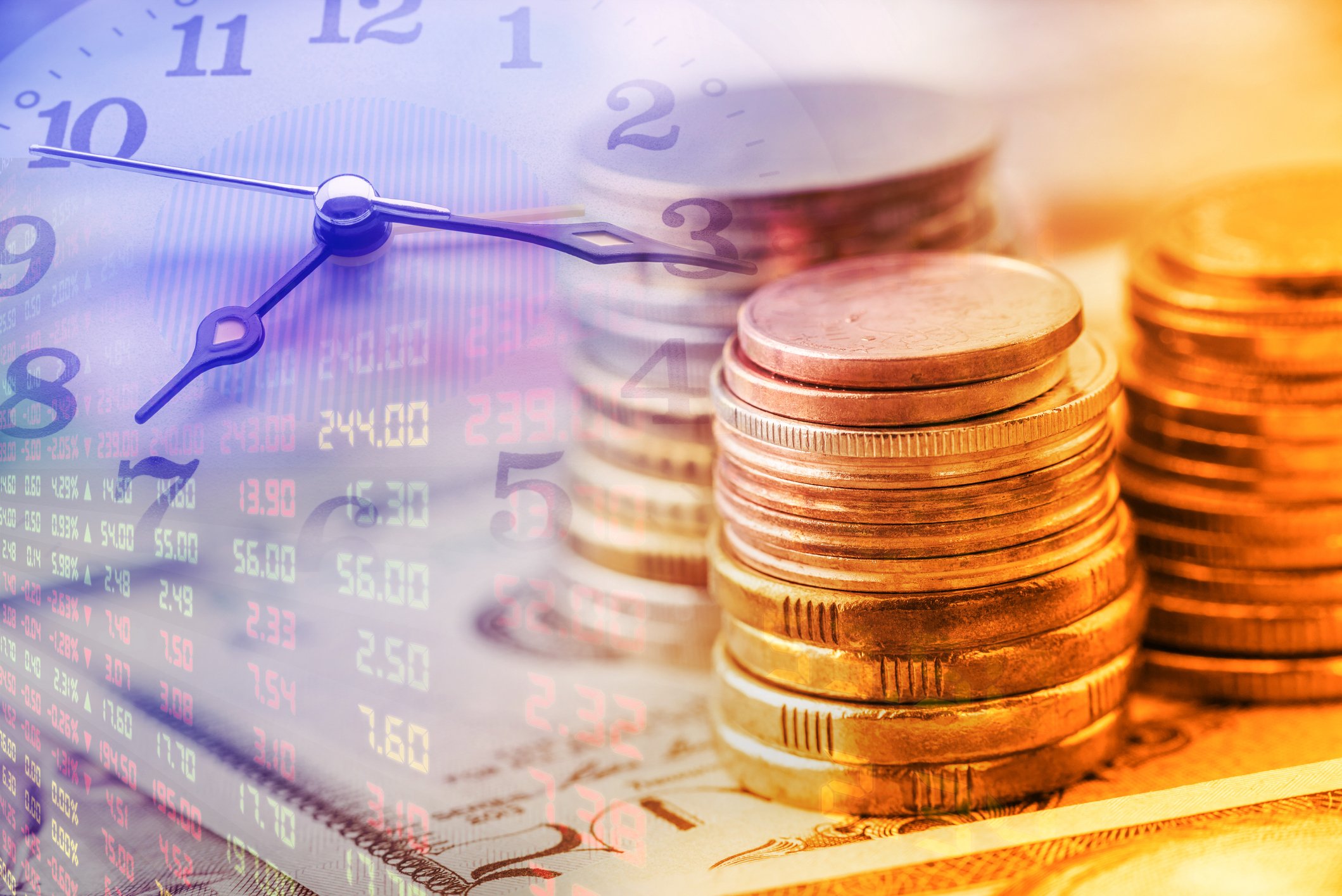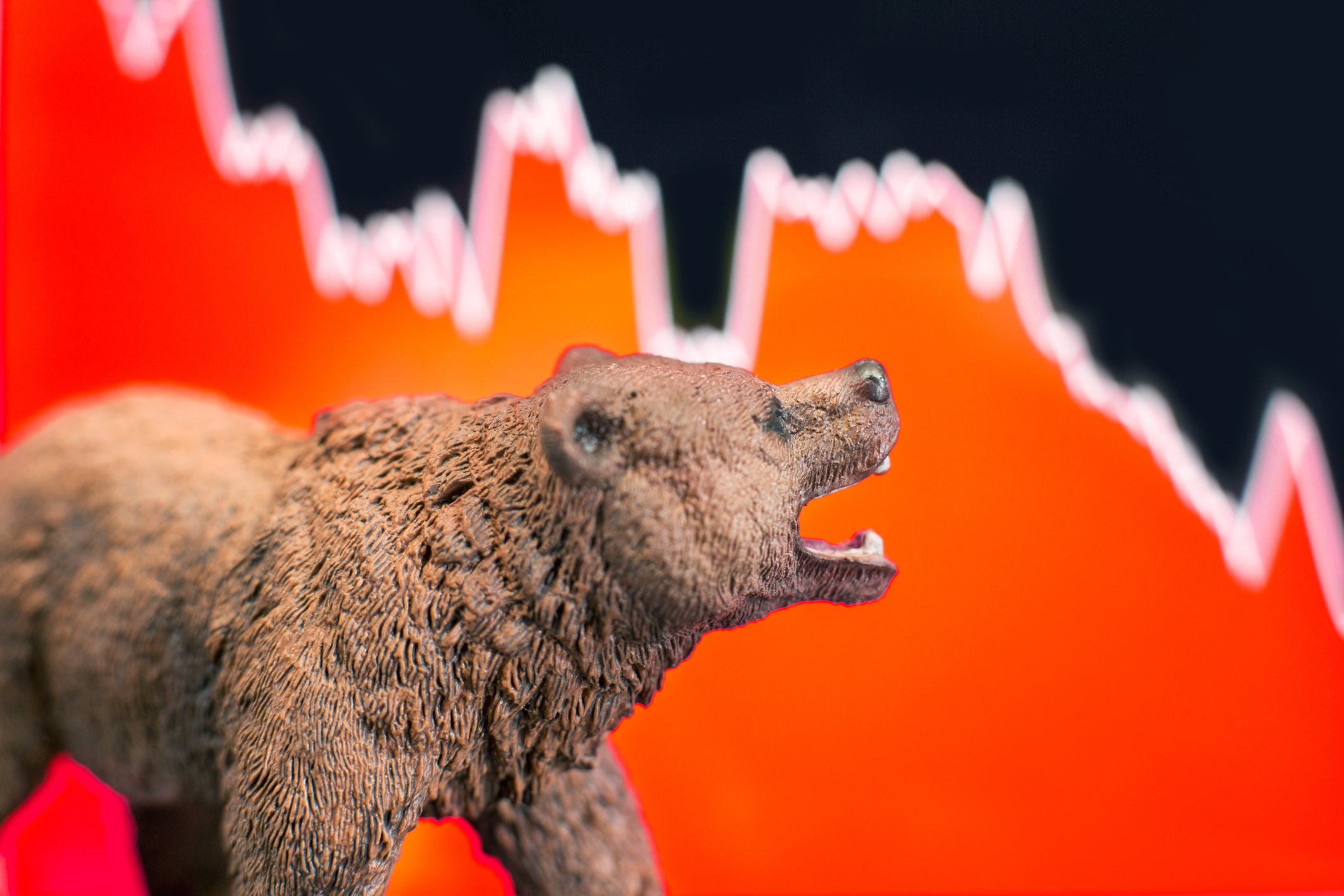To say that the past two weeks have been volatile for the stock market would be a brutal understatement. Over the nine trading sessions between Feb. 24 and March 5, the iconic Dow Jones Industrial Average (^DJI 0.17%) registered its two largest single-day point increases in history (1,294 points and 1,173 points), as well as logged five of its 10-largest single-session point declines on record, ranging from 786 points to an all-time record 1,191 points.
On March 2 and March 3, the Dow also recorded its respective third- and second-largest intraday point swings in its 123-year history. Though we're only through roughly 10 weeks of 2020, it's already the most volatile year since 2011 in terms of 3% moves up or down on the Dow.

Image source: Getty Images.
Coronavirus wreaks havoc on Wall Street
Behind this volatility is the global spread of coronavirus disease 2019 (COVID-19). COVID-19 is a lung-focused illness that, according to the World Health Organization as of March 5, has been identified in more than 95,000 people globally and is responsible for close to 3,300 deaths.
What makes COVID-19 so scary is two factors. First, there's the incubation period of the SARS-CoV-2 virus, which has been widely pinpointed as being anywhere from one to 14 days. This means that people who have the novel coronavirus could be unknowingly transmitting the virus to healthy people without realizing it.
As confirmed cases of COVID-19 rise in the U.S., Italy, and South Korea, this undetected spread is becoming more commonplace. Without any current vaccines or cures for the illness, there's obvious worry for the health and well-being of those most affected, such as the elderly and those with compromised immune systems.
The second concern is worries about what COVID-19 could do from a financial perspective, which is why the stock market has been so volatile. Supply chain disruption in China and potentially other parts of the world has already caused a number of high-profile companies to warn Wall Street that they wouldn't meet previously issued sales and/or profit guidance.
Here's how smart investors are reacting to the coronavirus-induced panic
With wild swings being a near-everyday occurrence of late, you might be wondering what investors should be doing to best position themselves to profit. Below, you'll find five smart ways to position your portfolio to succeed.

Image source: Getty Images.
1. Stay invested!
The most important step to navigating the coronavirus panic appropriately is to remain invested in the stock market. Steep corrections are always a good wake-up call to review your initial investment theses for your holdings. However, a steep move lower in the market is never a good reason to panic-sell and head for the perceived safety of the sideline.
What you may not realize is that many of the market's best days are located within close proximity of its worst days. Just take the aforementioned nine trading days as a perfect example. The Dow's two largest point gains in history have come sandwiched between five of its biggest point declines in 123 years.
An annual report issued by J.P. Morgan Asset Management yields similar findings. After reviewing a rolling 20-year period of the broad-based S&P 500 (^GSPC 0.06%), analysts found that between 50% and 60% of the S&P 500's top single-day percentage gains occur within close proximity (typically two weeks or less) to its worst-performing days. If you head for the sidelines, you'll compromise your ability to generate long-term wealth by potentially missing out on big rallies.
2. Buy corrections and use limit orders
Secondly, you're a smart investor if you're buying the dips and using limit orders to do so.
If you had bought at any point during the previous 37 official corrections in the S&P 500, you'd currently be in the green on your position today, even with the volatility of the past two weeks taken into account. The fact is that earnings growth tends to push stock valuations higher over the haul. This leads to corrections -- which are typically short term in nature -- being put into the rearview mirror.
Nevertheless, it's a wise idea to use limit orders during periods of heightened volatility. Since order imbalances around the opening or closing bell can lead to wild price swings in individual stocks, limit orders help investors set their own purchasing guidelines, as well as eliminate any surprises.

Image source: Getty Images.
3. Don't use margin to buy stocks
A third way to succeed amid the coronavirus volatility is to avoid using margin to buy perceived-to-be cheap stocks. While using margin is unavoidable in certain instances, such as short-selling a stock, utilizing margin to buy a stock when you don't have cash at the ready is a no-no.
While on one hand, you can leverage your gains if you're correct, margin can also exacerbate your losses if you aren't right. And if history proves anything, it's that predicting where the stock market will move on a day-to-day basis is virtually impossible to do with any long-term consistency.
What's more, your brokerage is going to charge interest on the money you borrow, which in a roundabout way is increasing the cost basis of buying stocks on margin and negating the good deal you believe you nabbed.
4. Focus your efforts on grabbing high-quality dividend stocks
Next, consider buying high-quality dividend stocks.
According to a J.P. Morgan Asset Management report from 2013, publicly traded companies that initiated and grew their dividend payouts between 1972 and 2012 delivered an average annual return of 9.5%. By comparison, stocks that didn't pay a dividend averaged a yearly gain of just 1.6% over this same four-decade stretch. That's a nearly 500% average annual outperformance for companies that pay a dividend and grow their payouts over time.
This really shouldn't come as a shock, given that dividend-paying stocks are usually profitable and have time-tested business models. Since stock market corrections are often short-lived, dividend stocks can be a smart place to park your money.

Image source: Getty Images.
5. Think long term
Lastly, smart investors are going to want to have a long-term mindset when buying stocks. Since short-term moves in the stock market are unpredictable, betting on getting the move you want in a matter of weeks or months is akin to rolling the dice. It takes time for businesses to implement their growth strategies, as well as for your investment thesis for a company to come to fruition.
Furthermore, the vast majority of wealth creation tends to occur later in an investor's life. As noted by Medium.com, in August 2018, Warren Buffett generated a whopping 99.7% of his wealth after his 52nd birthday. This is the result of Buffett buying high-quality businesses (which often pay a dividend) and holding onto them for long periods of time.
In short, don't give in to the coronavirus panic. Stick to your long-term game plan and you'll be just fine.







